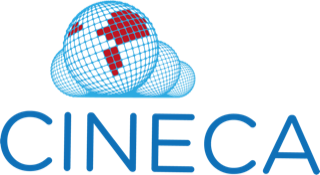To help researchers learn about finding, accessing and analysing sensitive human data in a federated fashion, the CINECA project has developed a learning pathway. In this blog, we describe why federated data analysis is important, what is included in the learning pathway and how it can be accessed.
Read MoreAuthors: Nicola Mulder (UCT), Mamana Mbiyavanga (UCT), Saskia Hiltemann (EMC), Vera Matser (EMBL-EBI), Marta Lloret Llinares (EMBL-EBI)
In this deliverable document, we report on the activities in task 6.4 - Training Programme, describe the CINECA training activities that took place in months 25-36 of the project and provide the Training Plan for the final year.
The CINECA training programme aims to train people within the CINECA consortium as well as external users. Different approaches have been employed, including face-to-face and online courses, hackathons, training videos and staff exchanges. While we waited for CINECA products to be completed, many of the training efforts for the year again focused on internal learning opportunities and knowledge exchanges, but some externally facing events were held to disseminate outputs. All the training and outreach events continued to be heavily impacted by COVID-19, which removed our ability to hold face-to-face workshops and staff exchanges. The staff exchanges were suspended and replaced with virtual meet-ups.
https://doi.org/10.5281/zenodo.5795482
The EUCAN Cluster consists of seven projects (CINECA, EUCANCan, EUCAN-Connect, euCanSHare, iReceptor Plus, and ReCoDID) that received funding under the same Horizon 2020 call, SC1-BHC-05-2018.
This document provides a high-level overview of each project in the cluster.
Read MoreThis video provides an Overview of the FAIRsharing.org by Allyson Lister as part of the CINECA “How FAIR are you” webinar series and hackathon.
Read MoreIn collaboration with other GA4GH-associated projects, CINECA is developing infrastructure which will permit effective use of widely-dispersed data increasing the size and quality of datasets available for disease research. In alignment with community standards, using standardised interfaces, data analysis will be federated and migrated to the data, respecting data access restrictions.
Solutions CINECA is adopting from the Discovery Work Stream include the Data Connect and Beacon v2 API, while from the DURI and Data Security Work Streams the GA4GH Passports, AAI and DUO are being utilised.
Recently WP4 has delivered a simple demonstrator pipeline to perform a federated joint variant genotyping analysis. The goal of this use case is to demonstrate how a simple metric (in this case, allele frequency) can be computed in a federated manner, without requiring ever collecting the individual level data in a central location.
Read MoreThis month’s blog was written by Nicola Mulder, Professor and head of the Computational Biology division at the University of Cape Town, and Principal investigator of H3ABioNet, a Pan African bioinformatics network for H3Africa, and Mamana Mbiyavanga, a Bioinformatics Scientist and PhD student at UCT, who contribute to a diverse range of CINECA work packages. This blog is less of a technical report in our Global Alliance for Genomics and Health (GA4GH) standards series than the previous 4, and more of a report on how WP6 - ‘Outreach, training and dissemination’ is contributing to developing better implementation of GA4GH standards.
Read MoreThis video describes the FAIRplus fairification wizard by Fuqi Xu (EMBL-EBI) as part of the CINECA “How FAIR are you” webinar series and hackathon.
Read More








